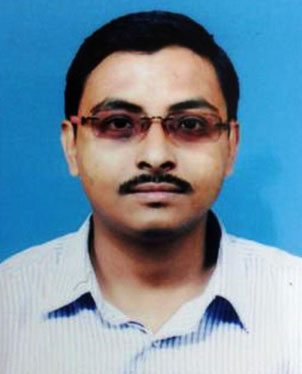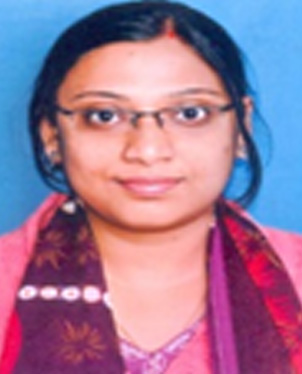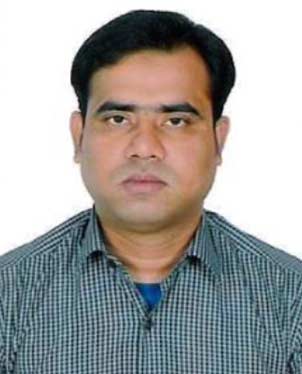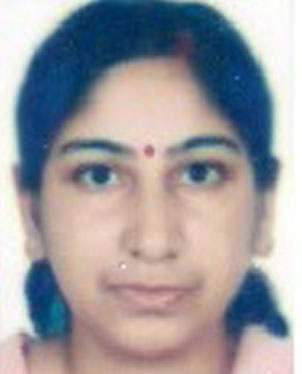 Govt. of W.B.
Govt. of W.B.

Maulana Azad College
Affiliated to the University of CalcuttaNAAC Accredited with 'A' Grade
DBT Star College with Star Status
College with Potential for Excellence (UGC) (2010)
 ADMIT CARD 2024 SEM V EXAMINATION 2024 :
B.A. Gen. | B.A. Hons. | B.Sc Hons | B.Com. Hons
ADMIT CARD 2024 SEM V EXAMINATION 2024 :
B.A. Gen. | B.A. Hons. | B.Sc Hons | B.Com. Hons
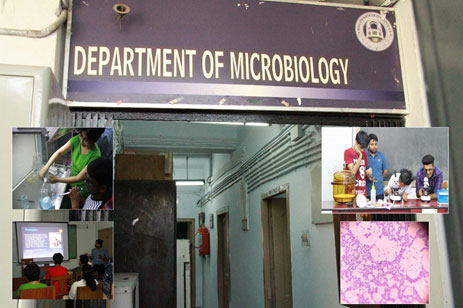
Department of Microbiology
The Department embarked on its illustrious journey on the year 2003 under the auspices of the expansion plans perceived by the Platinum Jubilee Celebration Committee in 2001. The ball was set rolling when a classroom in the top floor of the Annexe Building was converted into a Laboratory and services of two teachers of Botany and Chemistry Departments were placed for this new Department by the order of Department of Higher Education, Government of West Bengal. University of Calcutta gave due affiliation in mid 2003 and the first batch of students were admitted. Since then, two more laboratories were constructed, 3 new teaching posts were created along with 2 other posts converted from other departments. Presently there are five regular and two part time teachers in the department along with a lab attendant. Construction of a roof-top extension has been completed to comply with the increased need of class room space under the newly introduced CBCS framework. This section houses two more classrooms, one classroom cum laboratory, one dedicated research laboratory and one teachers' room. In addition to augmentation of classroom and practical demonstration space, it is believed to cater for the growing need of dedicated research facility at the Department.
Since its inception, this department is contributing in a meaningful way to the growth of this college. Although of high demand, the course is viable in most Non-Government Institutions by virtue of high course specific fee structure. At Maulana Azad College, we run the course with regular developments grants from the Government at a nominal fee structure without compromising the quality of education. This enables many bright students from economically challenged families to take up the course at undergraduate level. With extramural support from UGC, DBT and other funding agencies, we even go a step further and carry out frequent training programmes, workshops and other co-curricular activities to motivate young minds in pursuing a research career. In addition, various other extracurricular activities like picnics, annual get together and academic excursions never let the students feel tired of their study load.
The department is one of the five beneficiary departments of the DBT STAR COLLEGE scheme support (since 2010-11) under which students' workshops, seminars and "Meet your peers" sessions are organized time to time to motivate students in life science research. The Department has also been recognised as a Ph.D. awarding centre registered with University of Calcutta and is under the process of being upgraded to a full-fledged research centre. In recognition of the growing research ambience, the Department had received support under the DBT BOOST scheme to augment its research infrastructure. In a congenial and friendly environment, we continually thrive to prepare our students to prevail in a competitive environment of today's education and secure a place at a reputed Masters' programme,
The students have been consistently securing University ranks for the last five years. Those who have passed out are primarily engaged in research in reputed Institutes like IISC (Bangalore), JNU (New Delhi), Bose Institute (Kolkata), IACS (Kolkata), IISER (Kolkata) etc. after successfully completing their Graduation programme. Others took up entrepreneurship, civil services, IT jobs in multinationals and teaching.
Courses:
B.Sc. Honours in Microbiology under CBCS system of the University of Calcutta
CBCS Syllabus of MCBA by CU : View
Semester-wise Offered Course Structure (CBCS) : View
Key Features of the Course Offered:
CORE Course of Microbiology (CC)
SEC-A: Biofertilizers and Biopesticides
SEC-B: Food and Fermentation techniques
DSE-A (2): Advances in Microbiology
DSE-B (1): Inheritance Biology
DSE-A (2): Plant Pathology
DSE-B (2): Instrumentation and Biotechniques/ Project Work
GE (1& 3): Chemistry
GE (2 &4): Physics/ Mathematics/Botany Zoology
Learning objectives/outcomes
Learning objectives/outcomes : View
Microbiology was introduced in the UG curriculum of the University of Calcutta in the year 1997 as a job-oriented course keeping in mind the high demand of microbiologists at that time in a wide arena of industries spanning Biotechnology, dairy products, processed food and beverages, health, diagnostics, pharmaceuticals, animal husbandry as well as other agro-industrial products. However, the trend started to shift as most of the students graduating from this discipline chose higher education as their career profiler and preferred taking competitive examinations like NET, GATE to enrol for Ph.D. programmes in research institutions across the country. The syllabus taught under the UG course has been moulded quite a few numbers of times accordingly to serve this dual objective of a job centric education as well as to cater the needs of an aspiring academician. It has been constituted with amalgamation from the four basic sciences - chemistry, biology, physics and mathematics and any student enrolling for the course is expected to live up to this interdisciplinary nature of the subject.
We, at Maulana Azad College, strive to empower our students with the dynamism to choose their career path wisely and decide according to their wish and capability since they come from households of diverse socio-economic backgrounds. A student graduating from this department by default gets enrolled at a post-graduation course either in Microbiology itself or in a similar or related subject. However, having said that, the student also has to put his/her part to secure a PG seat at a reputed place. Over the last few years, students with above par merit are also getting admitted in integrated Ph.D. programmes being offered by reputed research Institutes like IISC (Bangalore), NCBS/TIFR (Bangalore/Mumbai), IACS (Kolkata), Bose Institute (Kolkata) etc. Thereafter, most of them are qualifying National Entrance examinations and opting for PhD. programmes and taking up professional careers either as academicians or scientists. Students who are not able to meet the standards of higher merit, are also absorbed occasionally in smaller biotech and pharmaceutical factories after their graduation or in more lucrative places such as the Spice Board of India after their post-graduation. The recent introduction of the CBCS module has seen quite a few numbers of alterations being made in the syllabus such as introduction of a few skill based learning courses to make it more job centred. Besides conventional education, the faculty members also put their very best to engage the students time to time in various co-curricular activities like participation in workshops and hands-on programmes, seminars, presentations, objective oriented excursions such as industry and institute visits and short term research projects all of which add to their credentials at higher rungs of their academic hierarchy. The department is one of the beneficiaries of the DBT STAR College status and most of these activities are aided by DBT. Over the years, students of all batches have fostered in the homely ambience of the Department where faculties have taken care of their interpersonal needs and tried to ensure that they reach their fullest academic potential.
Vision
To create a learning environment encompassing students from all socio-economic backgrounds and to empower them with modern state-of-the-art knowledge from the discipline.
Mission
To impart quality education within the confines of the syllabus and to ensure near absolute enrolment into higher education.
Lesson Plan :
Lesson Plan 19-20 UG :View
Lesson Plan 20-21 UG:View
Lesson Plan Dept. Microbiology 2021-22: View
Open learning resources Microbiology Department: View
Lesson Plan – 2022-23:View
Question Bank
- SEM 2 Question Bank - UG : View
- SEM 4 Question Bank - UG : View
- CC1_Introduction to Microbiology & Microbial Diversity Model questions : View
- CC2_Bacteriology Model questions : View
- CC5_Virology Model questions : View
- CC6_Microbial Physiology & Metabolism Model questions : View
- CC7_Molecular Biology Model questions : View
- CC 11 Food & Dairy Microbiology Model questions : View
- CC 12 Industrial Microbiology Model questions : View
- DSE A2 Advances in Microbiology Model questions : View
- DSE B1 Inheritance Biology Model questions : View
- SEC-A 2. BIOFERTILIZERS AND BIOPESTICIDES : View
Open Resources:
Coming Soon
Faculty:
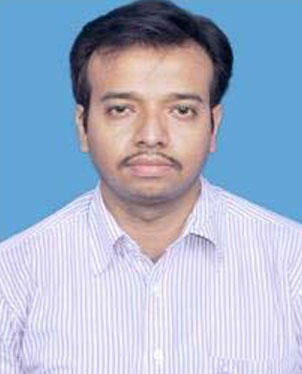 Dr. SAMUDRA PROSAD BANIK
Dr. SAMUDRA PROSAD BANIKQualification: M.SC. , PHD
Designation: ASSOCIATE PROFESSOR & Head
View Profile
Gallery / Testimonials
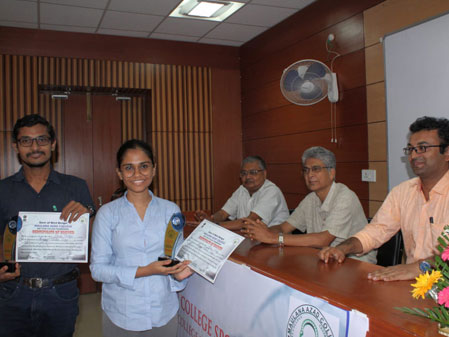
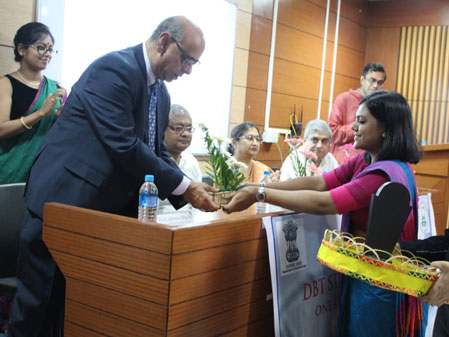
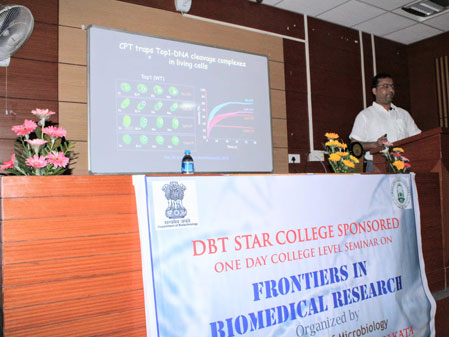
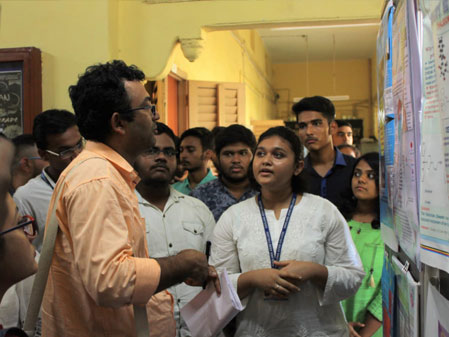
 ISO Certified -
ISO Certified - 
